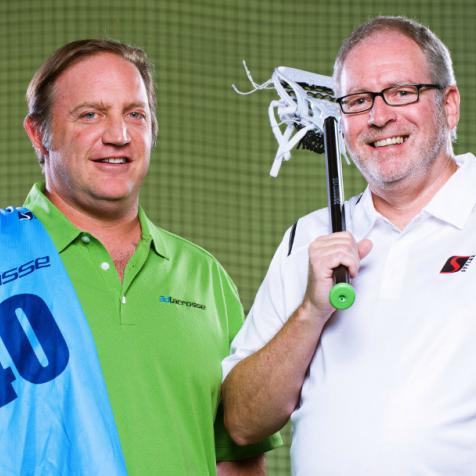
Company Details
Location
Denver, Colorado
Founded
2011
Ownership Type
Private
Employees
13
Products
Sports Apparel
Denver
Founded: 2011
Privately owned
Employees: 13
When 3d Lacrosse realized mainstream offshore manufacturers weren't meetings its needs, the company went rogue and started making its own uniforms in Colorado.
Over 19 years of coaching lacrosse, Jamie Munro pioneered a box-field hybrid training system for his players. After rounding out his career as the head coach for the University of Denver men's lacrosse team, he founded the nation's fastest growing lacrosse services company, 3d Lacrosse, as a one-stop shop for innovative training and premiere events.
Since launching in 2009, 3d Lacrosse has trained over 75,000 young players, "little laxers through committed high school players," as 3d Lacrosse President and COO Greg Waldbaum puts it. The entity currently services 130 club lacrosse teams nationwide, and has about 85 employees, plus hundreds of independent contractors.
Early on, Waldbaum realized big-name distributors weren't meeting the demands of 3d Lacrosse's clubs, teams, and players. Parents noticed, too, and, as Waldbaum explains, "A couple of club parents came to us, and said they had experience in manufacturing uniforms and wanted to partner [with 3d Lacrosse]."
"We realized it was more efficient and more appropriate to build a delivery mechanism in-house," Waldbaum continues. And that realization was the genesis for Stylax, 3d Lacrosse's supplemental uniform company.

What started out as a brainstorm has grown to be a major player in the sports manufacturing arena. Today, Stylax provides custom sublimated uniforms and sports apparel to over 20 clubs, schools, and organizations in Colorado, and the company also has clients in Alabama, Texas, New Hampshire, Vermont, Virginia, Michigan, and New York. 3d Lacrosse remains Stylax's biggest customer.
About 18 months ago, 3d Lacrosse took sole control of Stylax, and Waldbaum brought on General Manager Bruce Barker to amp up production.
Around that time, Stylax moved from a small, 1,300-square-foot retail park in Lafayette to its current 5,000-square-foot Denver facility, doubled its personnel, and invested in new equipment to accommodate anticipated growth. Stylax currently employs four sewers, but there are enough machines to accommodate 16.
"The whole idea of made in the USA is important," Barker says. Prior to launching Stylax, 3d Lacrosse got its uniforms from companies manufacturing in China and Pakistan, and it took eight-plus weeks -- and sometimes up to six months -- for orders to arrive.

An in-house, local product cycle, by contrast, is a mere four to six weeks, and if a player loses or damages a uniform mid-season, "In a matter of two to three days, we can rush an entire uniform to them," Waldbaum says.
Stylax sources its polyester fabric from a wholesaler in Philadelphia. "We start from scratch with original art and rolls of fabric that we cut and sew together," Barker says.
The raw fabric is white, and ink is taken through a rotary press to transfer images and patterns onto the polyester. "It's a permanent transfer, and there is no limit on what we can do, design-wise," says Barker, explaining that intimate customer involvement is another advantage of stateside manufacturing.
Lacrosse teams work with Stylax's sophisticated graphics department to help design their uniforms. "We'll give them several renderings from the concepts they provide us, and print miniature versions of what they want before producing it," says Barker.

Challenges: Stylax has its systems in place, and now the challenge is finding experienced sewers to add to a growing manufacturing team.
Opportunities: "Lacrosse is still the fastest-growing team sport in the country," says Waldbaum. Stylax is working on growing its non-3d Lacrosse clientele, and that includes talking to colleges. The company is also looking at expanding into box lacrosse, an indoor Canadian version of the sport that requires a different type of uniform.
Needs: "There are newer, more efficient sewing machines that would allow us to expand," says Barker, noting that Stylax is interested in augmenting its current equipment with cutting-edge sewing machines -- especially sewing machines that can stitch on Spandex, since the company is currently developing patterns for the fabric.

